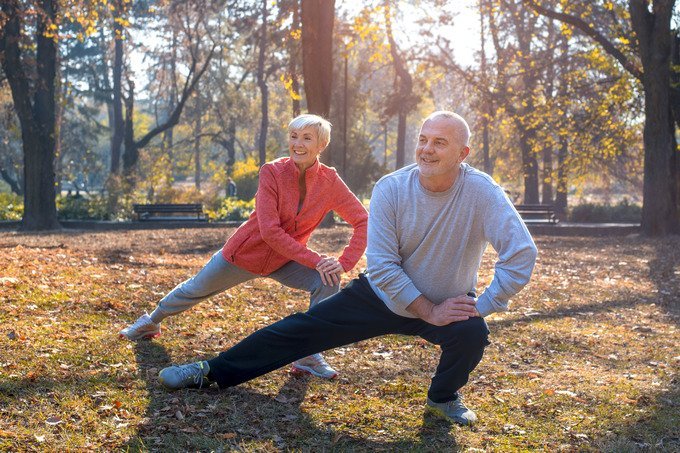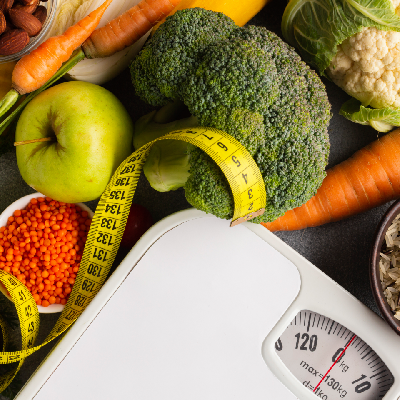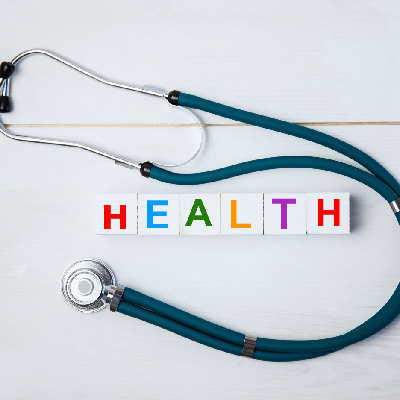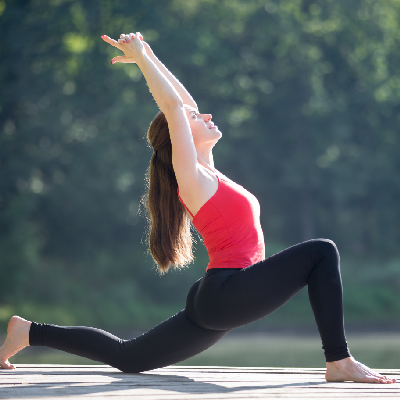We often take them for granted until a problem arises. A break, a diagnosis like osteopenia, or the arrival of joint discomfort can swiftly bring to mind that our skeletal structure isn’t merely a means of support—it’s a vital, active component of our well-being.
For robust, healthy bones, the ideal moment to begin caring for them was yesterday; the next best moment is right now. The encouraging news is that you don’t have to depend on medication to safeguard your bone health. Countless natural, everyday approaches can help you develop stronger bones, lower your chances of developing osteoporosis, and maintain your mobility as you age.
In this guide, I’ll discuss 10 potent and natural methods to promote bone health, all supported by research and filled with practical examples that you can implement immediately.
1. Increase Your Intake of Calcium-Rich Foods (Naturally!)
Calcium is the mineral most commonly associated with building healthy bones. Roughly 99% of the calcium in your body is found in your bones and teeth. However, your body doesn’t create calcium on its own.
Best Natural Sources of Calcium:
- Dairy: milk, cheese, yogurt
- Leafy greens: kale, bok choy, collard greens.
- Fish: canned sardines and salmon with bones
- Fortified plant-based milks (soy, almond, oat
- Sesame seeds and tofu
? Pro tip: Make your smoothies with calcium-fortified almond milk and a handful of spinach for a powerful bone-health boost.
2. Catch Some Rays for Your Vitamin D Intake
Vitamin D is essential for your body to absorb calcium properly. Without sufficient vitamin D, your bones won’t grow strong, even with a healthy diet.
Sources of Natural Vitamin D:
- Sunlight (15-30 minutes of direct exposure, 3–5x a week).
- Fatty fish (like salmon, sardines, mackerel)
- Egg yolk
? Winter tip: If you reside in northern areas or have limited sun exposure, think about taking a vitamin D3 supplement. Try to maintain a blood level of 30 ng/mL or higher.
3. Boost Your Bone Health with Magnesium and Zinc
When it comes to bone health, calcium often takes the spotlight, but magnesium and zinc are equally vital. Magnesium helps to activate vitamin D, while zinc promotes the activity of bone-building cells.
Foods abundant in magnesium include:
- Almonds, cashews, and peanuts
- Avocados
- Legumes like black beans and lentils
- Dark leafy greens
Zinc-rich food options are:
- Pumpkin seeds
- Chickpeas
- Red meat and shellfish
- Whole grains
? Daily tip: For an easy mineral boost, try sprinkling pumpkin seeds on your salad or yogurt.
4. Make Weight-Bearing and Resistance Exercises a Priority
Engaging in exercise isn’t only about shedding pounds or gaining muscle; it’s also one of the best methods to fortify your bones. Weight-bearing exercises prompt your bones to grow stronger and increase in density.
Top Exercises for Bone Health:
- Walking or hiking
- Dancing
- Climbing stairs
- Lifting weights or using resistance bands
- Practicing Pilates and yoga
? Suggestion: Incorporate 30 minutes of weight-bearing activity three to five times a week. Even a brisk walk can make a difference!
5. Steer Clear of Too Much Sugar and Processed Foods
Consuming excessive added sugar can lead to greater calcium loss through urine and cause inflammation, which may weaken bones indirectly over time. Highly processed snacks high in sodium have a similar effect.
Foods to Reduce:
- Sugary beverages (soda, flavored teas)
- Fast food
- Highly processed snacks (chips, crackers)
- Frozen meals with high sodium content
? Suggestion: Swap out soda for sparkling mineral water with a hint of citrus.
6. Strengthen Your Bones with Collagen and Protein
Bones are partly composed of collagen—a type of protein—
Our bodies make less collagen as we get older, so it’s really important to get enough protein and nutrients that help build collagen.
Here are some foods packed with protein and collagen:
- Bone broth
- Chicken, turkey, and lean cuts of meat
- Beans and lentils
- Fish and eggs
- Fruits high in Vitamin C (like oranges, kiwi, and strawberries)
? Hint: Try adding some collagen peptides to your coffee or smoothie in the morning. It’s good for your skin, joints, and keeping your bones healthy.
7. Cutting back on caffeine and sugary drinks is a good idea.
Drinking too much caffeine can mess with how well your body absorbs calcium, especially if you’re not eating enough calcium-rich foods. Soft drinks, especially colas, have phosphoric acid, which might weaken your bones if you drink them a lot.
Here are some better options
- Herbal tea
- Green tea with less caffeine
- Unsweetened nut milks
- Water with a slice of lemon or cucumber
? General guideline: Keep your caffeine intake under 400mg a day (that’s roughly 3-4 small cups of coffee).
8. Kick the Habit: Stop Smoking and Cut Back on Alcohol
Both smoking and excessive boozing are really tough on your bones, increasing your chances of having low bone density and even breaking bones. They mess with your body’s levels of estrogen and testosterone, which are crucial for keeping your bones strong and healthy.
Here’s What You Can Do Instead
- Try swapping out alcoholic drinks for fancy mocktails or some tasty kombucha.
- Consider joining a support group or using an app to help you quit smoking.
- Give yourself a pat on the back when you reach milestones like one week or one month without smoking.
? Fun Fact: Smokers tend to lose bone density twice as quickly as non-smokers. The good news is, it’s never too late to quit and start improving your bone health!
9. Don’t Delay—Prioritize Your Bone Health Now!
Many individuals postponing bone density testing until they’re already at risk. However, detecting any weakening early on allows for proactive measures to avert major concerns like osteoporosis.
Here are some diagnostic tools to discuss with your physician:
- DXA Scan (dual-energy x-ray absorptiometry)
- Blood tests measuring calcium, vitamin D, and parathyroid hormone levels
- FRAX tool for evaluating fracture risk
Proactive Measure: If you’re over 40, particularly with a family history of osteoporosis or fractures, consider requesting a bone density screening.
10. Maintain Hormonal Balance the Natural Way
Hormones, particularly estrogen, progesterone, and testosterone, are intimately connected to the well-being of your bones. After menopause, many women encounter accelerated bone density reduction because of decreasing estrogen levels.
Here are some natural strategies to support your hormones:
- Incorporate flaxseeds and whole soy products into your diet.
- Make sure to get a solid 7–8 hours of sleep each night.
- Find healthy ways to handle stress, such as breathing exercises, taking walks, or keeping a journal.
- Steer clear of endocrine disruptors, like BPA and phthalates.
?Hint: If you’re over 40 and noticing irregular menstrual cycles or feeling unusually fatigued, consider talking to your physician about getting your hormone levels checked.
Bonus: A One-Day Sample Meal Plan for Stronger Bones
Curious about a day of meals focused on building strong bones? Here’s a sample menu:
Breakfast:
- Greek yogurt with chia seeds and berries (provides calcium, magnesium, and protein)
- Green tea
Lunch:
- A salad with grilled salmon, kale, pumpkin seeds, and olive oil dressing
- Served with a side of whole-grain pita bread
Snack:
- A hard-boiled egg
- Orange slices
Dinner:
- Stir-fried tofu with broccoli and sesame seeds
- Accompanied by brown rice
- Start or complement your meal with bone broth
Final Thoughts: Prioritize Bone Health Daily
Building strong bones isn’t a concern only for the elderly; it’s a commitment throughout life. By eating whole foods, staying active, enjoying the sun, and developing healthy habits, you can naturally promote strong bones and feel more robust each passing year.
Keep in mind: Small, regular improvements can result in enduring strength. No matter if you’re 25 or 65, your bones will benefit from the attention you give them now.
FAQ’S
1. What are the best natural ways to strengthen bones?
- The best natural ways include eating calcium-rich foods, getting enough vitamin D, staying active with weight-bearing exercises, consuming magnesium and zinc, reducing sugar, increasing protein and collagen intake, limiting caffeine, avoiding smoking and alcohol, balancing hormones, and getting regular bone-density checkups.
2. How much calcium do I need per day for healthy bones?
- Most adults need 1,000–1,200 mg of calcium per day, depending on age and gender. This can come from foods like dairy, leafy greens, fortified plant milks, nuts, seeds, and fish with bones.
3. Can sunlight really improve bone health?
- Yes! Sun exposure helps your body produce vitamin D, which is essential for absorbing calcium. Just 15–30 minutes of sunlight, 3–5 times a week, can significantly improve bone strength.
4. What are the best exercises for building stronger bones?
- Weight-bearing and resistance exercises are most effective. These include walking, hiking, dancing, stair climbing, weightlifting, Pilates, and yoga. They stimulate bone growth and increase bone density.
5. How does protein help improve bone strength?
- Protein makes up nearly 50% of bone volume. It helps build collagen—the structural framework of bones. Eating eggs, fish, legumes, chicken, tofu, and bone broth supports bone flexibility and durability.
6. Is too much caffeine harmful for bones?
- Excess caffeine may slightly reduce calcium absorption. While moderate coffee consumption is safe, it’s best to stay under 400 mg/day (about 3–4 small cups) and balance caffeine with calcium-rich foods.
7. How do magnesium and zinc support bone health?
- Magnesium activates vitamin D (essential for calcium absorption), while zinc supports bone-building cell activity. Foods like nuts, seeds, leafy greens, legumes, and whole grains help you meet daily needs.
8. Can smoking and alcohol really weaken bones?
- Yes. Smoking reduces bone-building hormones and increases bone loss. Heavy alcohol consumption interferes with calcium balance and slows bone regeneration. Quitting both significantly improves bone strength.
9. At what age should I get a bone density scan (DXA)?
- Women over 40, especially nearing menopause, and individuals with a family history of osteoporosis should consider early screening. A DXA scan helps detect bone loss before fractures occur.
10. What foods should I avoid for better bone health?
- Limit sugary drinks, processed snacks, excessive caffeine, soft drinks (especially colas), high-sodium foods, and alcohol. These can reduce calcium levels, increase inflammation, and weaken bones over time.
Suggested Read: bodyweight-exercises-to-build-muscle-at-home












